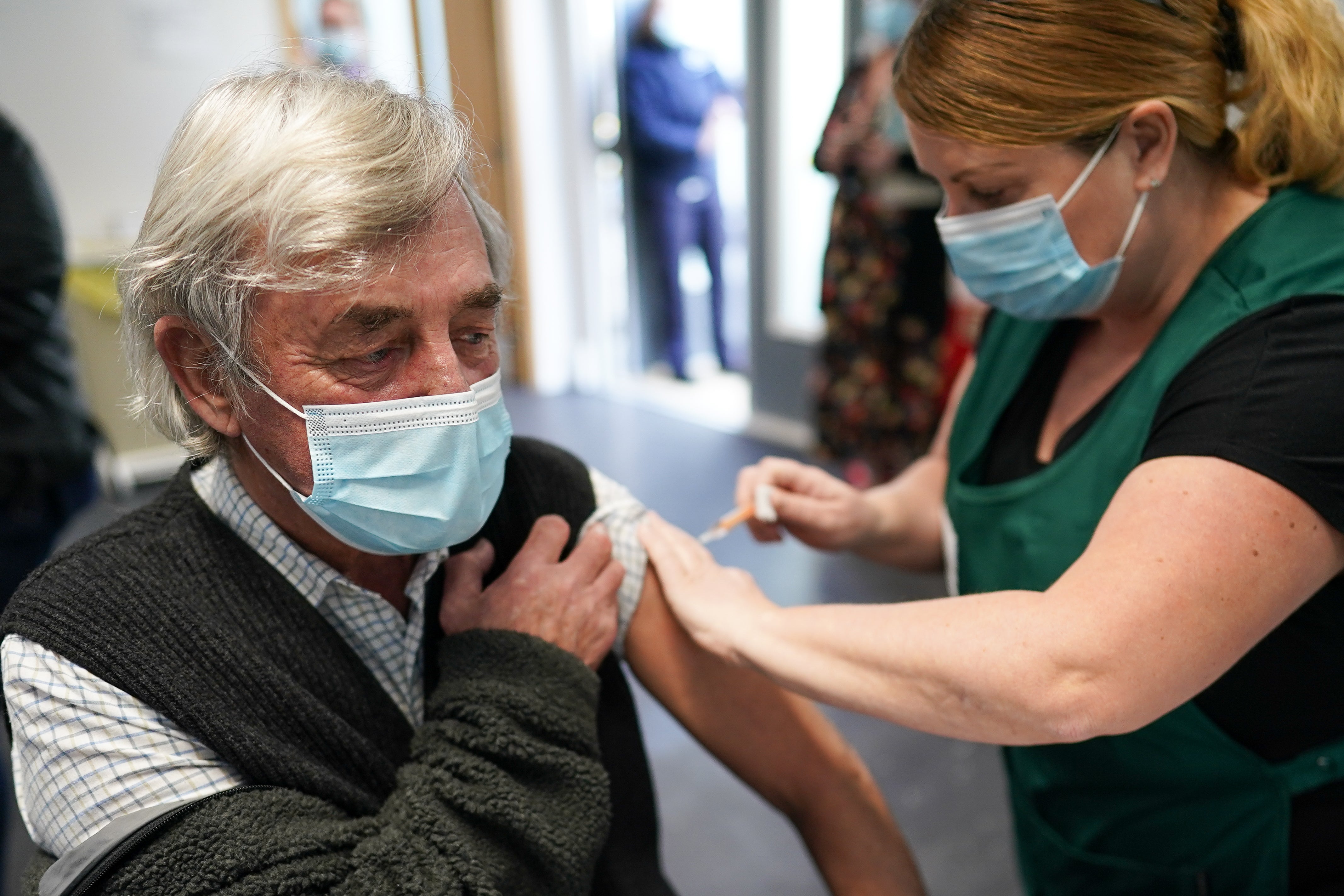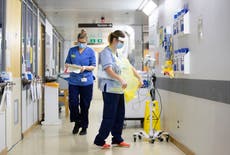How to opt out of NHS Digital data sharing
Plan to transfer pseudonymised medical records of 55 million British patients to central database delayed until September after concerns expressed about privacy and lack of public awareness regarding the project

Your support helps us to tell the story
From reproductive rights to climate change to Big Tech, The Independent is on the ground when the story is developing. Whether it's investigating the financials of Elon Musk's pro-Trump PAC or producing our latest documentary, 'The A Word', which shines a light on the American women fighting for reproductive rights, we know how important it is to parse out the facts from the messaging.
At such a critical moment in US history, we need reporters on the ground. Your donation allows us to keep sending journalists to speak to both sides of the story.
The Independent is trusted by Americans across the entire political spectrum. And unlike many other quality news outlets, we choose not to lock Americans out of our reporting and analysis with paywalls. We believe quality journalism should be available to everyone, paid for by those who can afford it.
Your support makes all the difference.A new NHS system to collect patient information from GPs’ surgeries has been delayed in order to give the public more time to become acquainted with it.
The GP Data for Planning and Research system was due to begin the business of transferring the pseudonymised medical records of 55 million British patients to a central database controlled by the NHS on 1 July but that start date has now been pushed back to 1 September.
Announcing the delay in the House of Commons on Tuesday, health minister Jo Churchill told MPs the new system “saves lives” and stressed that the government is “absolutely determined to take people with us on this journey”.
She said that ministers would use the additional time to “talk to doctors, patients and charities to strengthen the plan... and ensure data is accessed securely” while taking care to reiterate: “Patients own their own data.”
Countering, Labour’s shadow health minister Alex Norris criticised the government for a lack of “public engagement” and said the plans had been “snuck out under the cover of darkness”.
The British Medical Association and the Royal College of General Practitioners had written to NHS Digital earlier this week to express concern about a lack of widespread awareness about the project, according to the BBC, while privacy campaigners had taken exception to the idea that people’s confidential information might be sold on for commercial ends or that the database could be vulnerable to hackers.
Marina Hyde of The Guardian, for one, called the plan “a data grab” and likened it to the unpopular Care.data project David Cameron’s government abandoned in 2014.
“It would be relatively simple to re-identify [the] data – particularly for those with cross-referencing access to other databases, to say nothing of the risk of the third-party breaches it opens up,” she argued.
But NHS Digital says the venture is needed to update the current 10-year-old system, which “has been used to help better understand and develop cures for serious illnesses, such as heart disease, diabetes and cancer”.
“The new programme for collecting data has been developed in collaboration with doctors, patients, and experts in data, privacy and ethics,” the body said in a statement.
“Throughout this process NHS Digital has committed to being transparent with patients and the public about the collection and use of data.”
The information being compiled in the database will reportedly relate to an individual’s physical, mental and sexual health and carry their gender, ethnicity and sexual orientation but not their name or address, beyond a postcode that will be replaced by a unique code generated by de-identification software.
A GP’s written notes will not be included, nor will information on any fertility or gender reassignment treatments administered as these are protected by law.
NHS Digital has said the data held will be “structured and coded” to protect the privacy of individuals, although it will be able to “use the software to convert the unique codes back to data that could directly identify patients in certain circumstances, and where there is a valid legal reason”.
“NHS Digital’s improved collection of GP data will support vital health and care planning and research,” a spokesperson told The Daily Express.
“The organisations using the data to do this may be public sector bodies, charities, academic institutions or commercial organisations but they will all have a legal basis and legitimate need to use the data, which must be used for healthcare planning and research purposes.
“We do not sell the data. We will recoup the costs of providing the data as we are not funded to do so. We will not allow it to be used for commercial purposes such as marketing, insurance or market access.
“Requests for data will be stringently assessed, applications will be scrutinised by both an independent group of experts as well as GP representatives before any record level data is accessed and we publish all data sharing agreements on our website.”
University and hospital researchers, medical colleges and pharmaceutical companies developing new treatments will be entitled to apply for access to the data, which Caroline Cake, chief executive of Health Data Research UK, told the BBC’s Politics Live show this week had been a vital practice during the coronavirus pandemic when Covid-19 treatments were urgently sought.
However, those unhappy with the idea of the private data on their medical history currently held by GPs being shared are entitled to opt out of the process, so long as they do so before 1 September.
The NHS Digital website explains: “If you do not want your patient data shared with NHS Digital, you can register a Type 1 Opt-out with your GP practice. You can register a Type 1 Opt-out at any time. You can also change your mind at any time and withdraw a Type 1 Opt-out.
“If you do not want NHS Digital to share your identifiable patient data with anyone else for purposes beyond your own care, then you can also register a National Data Opt-out.
“You can find out more about and register a National Data Opt-out or change your choice on nhs.uk/your-nhs-data-matters or by calling 0300 3035678.”
More information about the project, how to opt out and where to find a form to send to GP practices can be found on the NHS site.




Join our commenting forum
Join thought-provoking conversations, follow other Independent readers and see their replies
Comments